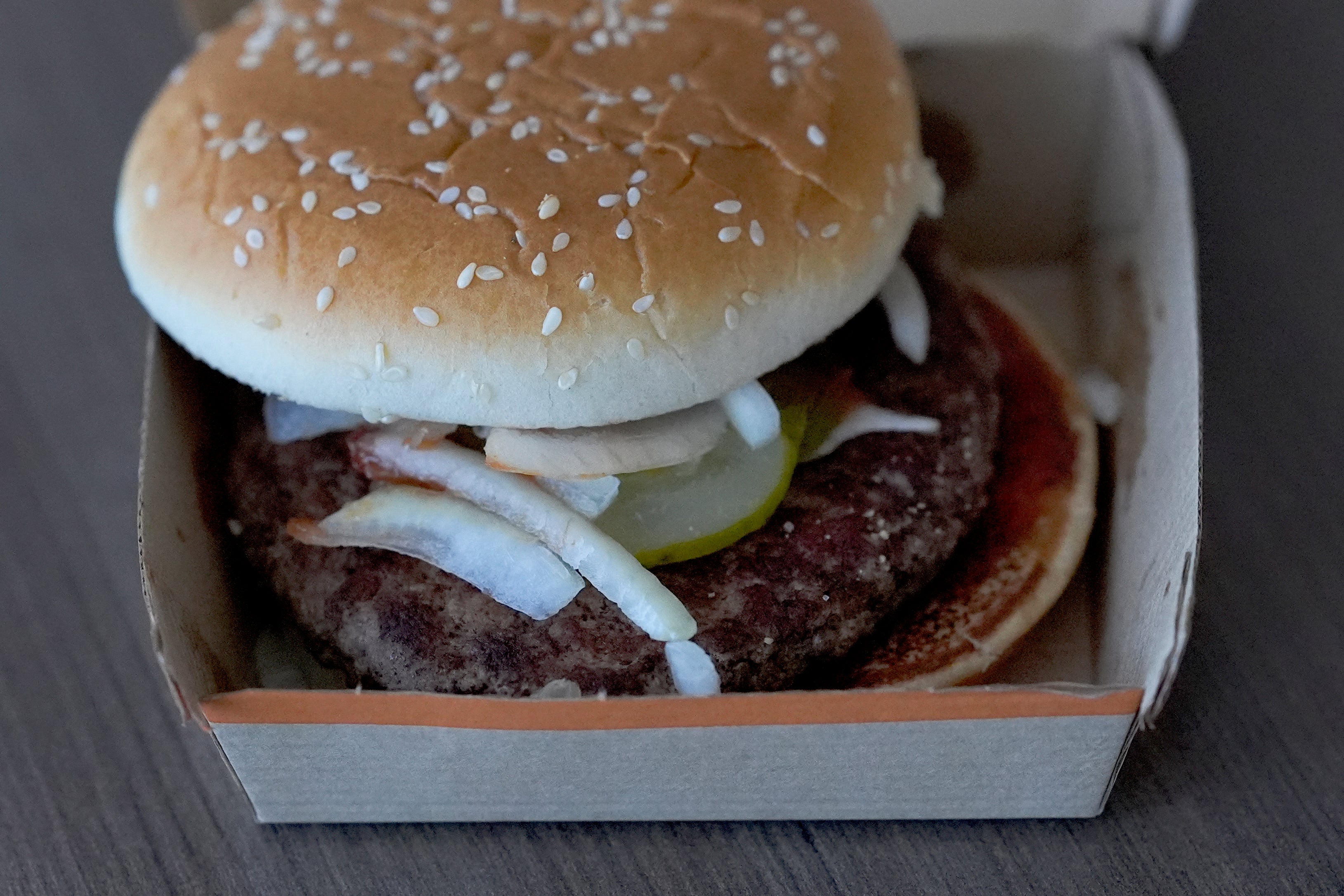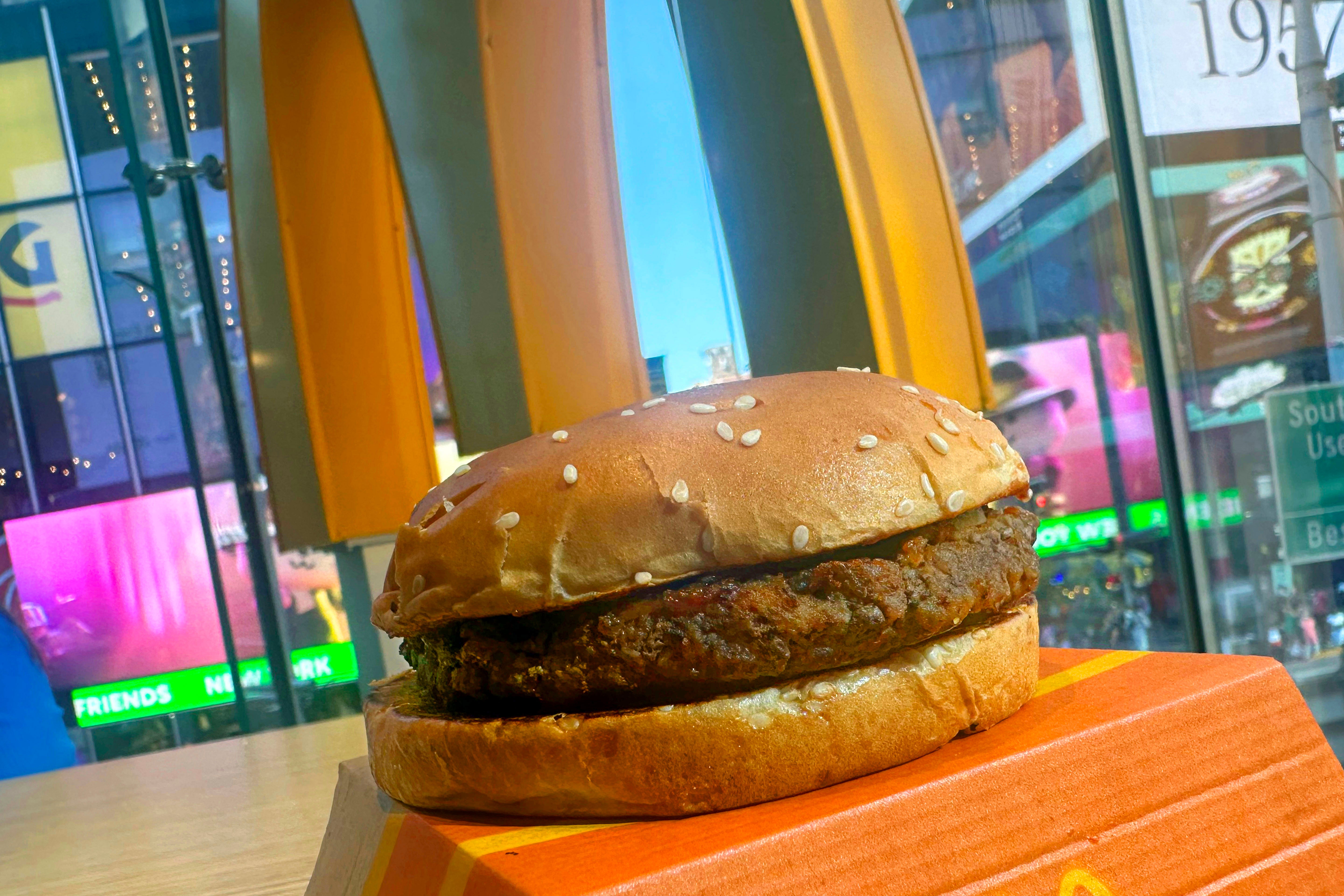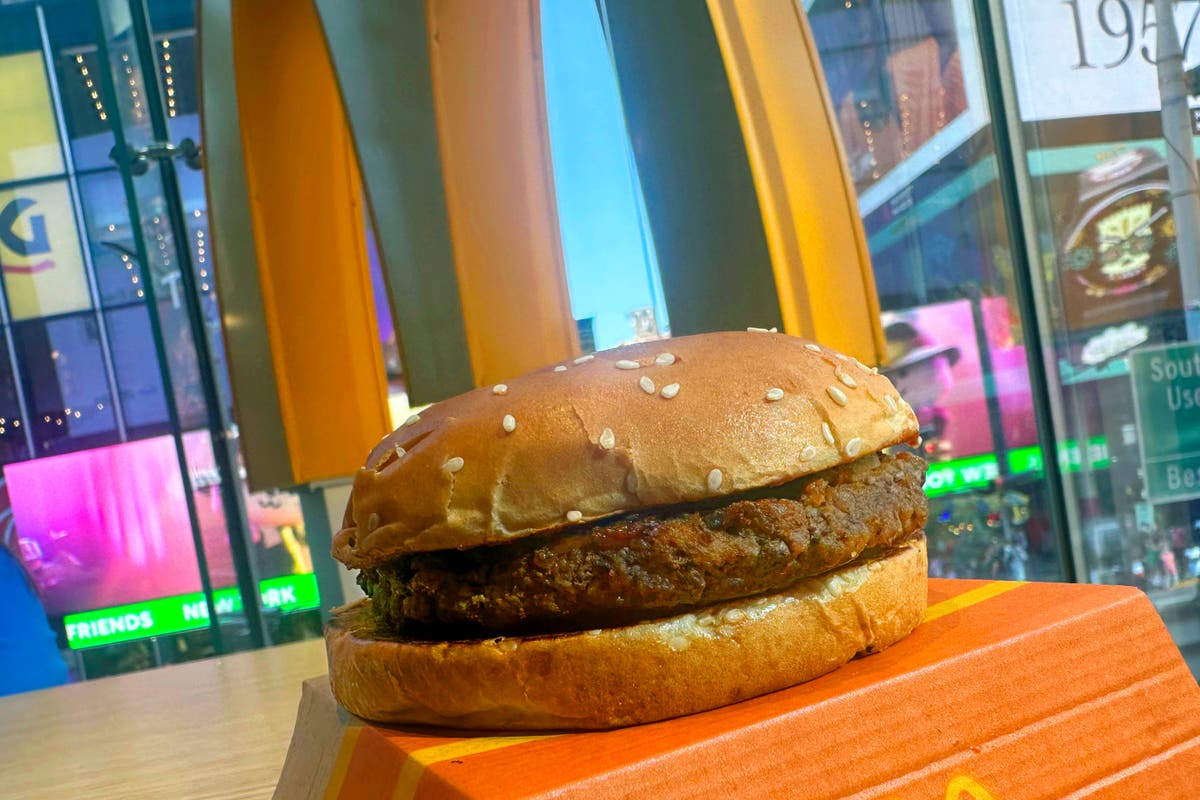Value meals helped turn around McDonald’s U.S. sales in the third quarter, but that recovery could be dented in the final months of the year by an E. coli outbreak tied to the company’s Quarter Pounder hamburgers.
U.S. same-store sales — or sales at stores open at least a year — rose 0.3% in the July-September period, the company said Tuesday. McDonald’s launched a $5 value meal in late June after a disappointing second quarter, and it said the deal drew lower-income consumers back to the store and improved customers’ value perceptions.
The $5 deal was so successful that McDonald’s recently extended it to December at most of its U.S. stores.
But last week, a crisis hit. McDonald’s pulled Quarter Pounders off the menu at around 3,000 stores after the U.S. Food and Drug Administration determined that the burger’s slivered raw onions were the likely cause of E. coli contamination. The outbreak has killed one person and sickened at least 75 others across 13 states.
Chris Kempczinski, McDonald’s chairman, president and CEO, apologized for the outbreak Tuesday on a conference call with investors. He said it was the first major public health issue tied to McDonald’s in more than 40 years.
“Nothing is more important to us than the safety of our customers,” Kempczinksi said. “The recent spate of E. coli cases is deeply concerning, and hearing reports of how this has impacted our customers has been wrenching for us.”
McDonald’s said it has stopped sourcing onions from that supplier and expects to put the Quarter Pounder back on all of its U.S. menus within the week, although it will be served without onions at 900 stores.
“I’m relieved that this situation appears to be contained and I remain confident in the safety of eating at McDonald’s,” Kempczinski said.

Still, the company acknowledged that the outbreak hurt its sales momentum. The company didn’t share sales data, but Placer.ai, which tracks retail traffic using cell phone data and other signals, said it saw a 9% year-over-year decline in U.S. visits to McDonald’s at the end of last week.
Kempczinski said the company hopes to win back customers by acting swiftly to contain the outbreak, cooperating with authorities and promoting its offers, like the $5 meal deal and the limited-time Chicken Big Mac. But it will take further actions if necessary, he said.
Outside the U.S., McDonald’s struggled during the third quarter. Chinese demand was weak as that nation’s economy slows, with customers choosing cheaper rivals, and the company has also been hurt by the war in the Middle East. To reverse a slowdown in French sales, the company introduced a 4 euro ($4.32) Happy Meal deal in August. It’s also selling $1 coffee in Canada.
McDonald’s same-store sales fell 1.5% companywide during the third quarter. That was worse than the 0.6% decline Wall Street was predicting, according to analysts polled by FactSet.

Kempczinski said a focus on value will remain in the U.S. in the first quarter of next year, but the company and its franchisees are still deciding what that will look like. He said it will likely be a mixture of low-priced entry-level items, meal deals and digital offers. The company might also introduce a McSmart menu of meal deals, as it has done in markets like Germany and Australia.
McDonald’s revenue rose 3% to $6.87 billion for the quarter. That was slightly higher than the $6.82 billion analysts were predicting.
McDonald’s net income fell 3% to $2.25 billion. Adjusted for one-time items, including the costs associated with acquiring McDonald’s business in Israel, the company earned $3.23 per share, which was higher than the $3.21 per share Wall Street was expecting.
Shares of McDonald’s Corp. were up 1% in morning trading Tuesday.




